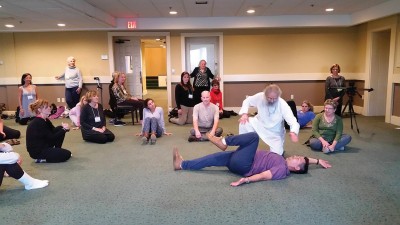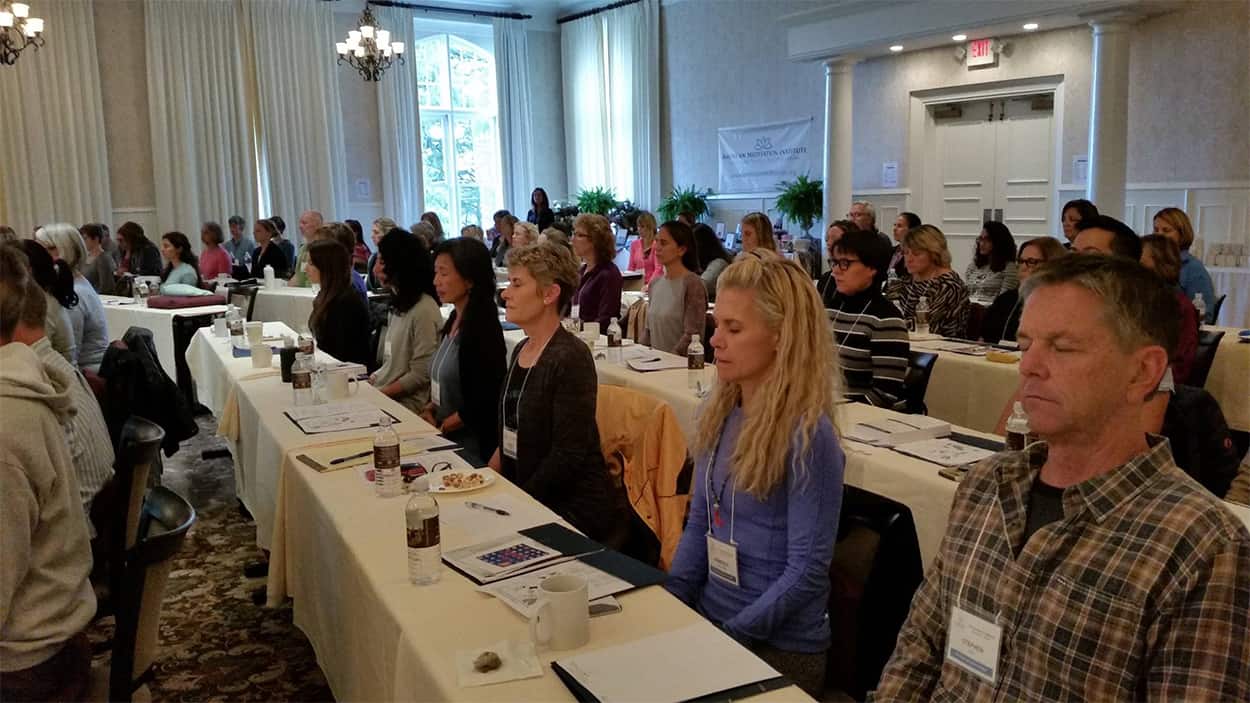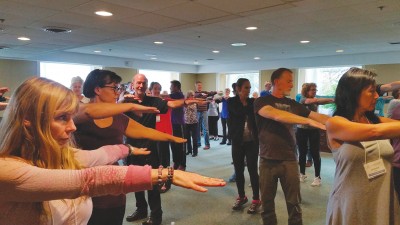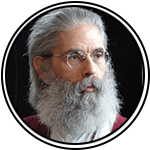 The American Meditation Institute’s (AMI) ninth annual continuing medical education conference to relieve and prevent physician burnout was held October 24-28, 2017 at the Cranwell Resort and Spa in Lenox, Massachusetts. Entitled “The Heart and Science of Yoga,” this comprehensive training in Yoga Science as holistic mind/body medicine training was accredited through the Albany Medical College and the American Medical Association.
The American Meditation Institute’s (AMI) ninth annual continuing medical education conference to relieve and prevent physician burnout was held October 24-28, 2017 at the Cranwell Resort and Spa in Lenox, Massachusetts. Entitled “The Heart and Science of Yoga,” this comprehensive training in Yoga Science as holistic mind/body medicine training was accredited through the Albany Medical College and the American Medical Association.
A recent American Medical Association and Mayo Clinic study found that compared with the general U.S. population, physicians worked a median of 10 hours more per week, displayed higher rates of emotional exhaustion, and reported lower satisfaction with work-life balance. Commenting on these findings, AMI founder and conference director Leonard Perlmutter states that, “The ‘Heart and Science of Yoga’ curriculum represents the oldest and most effective holistic mind/body medicine to relieve and prevent burnout, heal disease, manage addictive habits, alleviate stress and inflammation, and balance life-work responsibilities. The more consistently these therapeutic practices are incorporated into the daily lives of physicians and patients, most symptoms of stress related burnout and chronic complex diseases can be diminished or eliminated.”
In 2009, AMI conducted a retrospective case study of participants who completed Leonard Perlmutter’s “Heart and Science of Yoga” curriculum. The findings included these positive, reproducible, long-term health-promoting changes: significant reductions in stress and fear, decreased anxiety and depression, lowered blood pressure, lowered heart rate, improved restorative sleep, improved energy levels, Increased creative capacity, diminishment of migraine headaches, elimination of irritable bowel syndrome, enhanced happiness and optimism, reduced cholesterol levels, diminished or extinguished acute and chronic pain, weight loss and increased breathing capacity.
Upon completion of the 2017 physician conference, participants were taught to: 1. Develop equanimity, discrimination, will power, creativity and energy through a daily practice of AMI MEDITATION and diaphragmatic breathing; 2. Incorporate long-term strategies for healthy lifestyle choices using Yoga Psychology; 3. Demonstrate knowledge of the principles of both Ayurveda and Epigenomics; 4. Identify yogic practices to transform trauma and increase resilience; 5. Recognize the physiological benefits of easy-gentle yoga (exercises for lymph system detox, joints, glands, muscles and internal organs); 6. Help themselves and their patients reduce conditioned habits of negative thinking and other symptoms of burnout through the healing powers of mantra science; 7. Utilize “Food as Medicine” to maximize personal wellbeing; 8. Use Chakra Psychology (subtle emotional/mental causes of stress) to diagnose and treat dis-ease, and, 9. Recognize how meditation changes the neural pathways in the brain.
Numerous medical pioneers and healthcare professionals such as Mehmet Oz MD, Dean Ornish MD and Bernie Siegel MD have endorsed AMI’s core curriculum. In addition, Joel M. Kremer, MD, who is Board Certified in Internal Medicine and Rheumatology in Albany, New York and a recent AMI conference participant says, “This teaching has been an enormous benefit in my personal and professional life. I have less stress, more focus, and am able to serve my patients with greater clarity. It becomes surprisingly easy now to recognize the many clinical situations in which patients with somatic manifestations of ‘dis-ease’ could greatly benefit from Yoga Science.”
“This teaching has been an enormous benefit in my personal and professional life. I have less stress, more focus, and am able to serve my patients with greater clarity. It becomes surprisingly easy now to recognize the many clinical situations in which patients with somatic manifestations of ‘dis-ease’ could greatly benefit from Yoga Science.”
Joel M. Kremer, MD
“The ‘Heart and Science of Yoga’ curriculum represents the oldest and most effective holistic mind/body medicine to relieve and prevent burnout, heal disease, manage addictive habits, alleviate stress and inflammation, and balance life-work responsibilities. The more consistently these therapeutic practices are incorporated into the daily lives of physicians and patients, most symptoms of stress related burnout and chronic complex diseases can be diminished or eliminated.”
LEONARD PERLMUTTER



